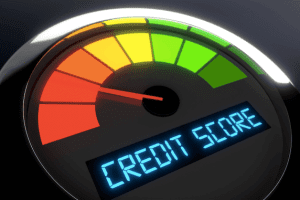No, you won’t go to prison for failing to repay a payday loan. Whilst it’s theoretically possible, it is wildly unlikely.
The only time where a prison sentence is an option for failure to repay a payday loan is if a lender takes you to court or sues you, and you fail to appear in court on multiple occasions. Then, a judge could consider issuing a warrant for your arrest.
You are likely to receive late fees or penalties, and a negative impact on your credit score. These are usually matched with several follow-up calls and letters from your lender who is trying to recover their funds.

Key Points
- Whilst technically possible, it’s highly unlikely you’ll be sent to prison for not repaying a payday loan.
- Lenders can take you to court or sue you for failure to repay a payday loan.
- Other types of debt are far more likely to end in jail time than payday loans.
- Lenders will try to recover their funds in a mutually beneficial way before taking you to court.
- As soon as you realise you can’t repay a loan, contact your lender.
- If you are summoned to court, you should attend!
Can Payday Lenders Take Me to Court?
Yes, payday lenders can take you to court for not repaying your payday loan.
In most cases, payday lenders in the US will try to get their funds back through means that are beneficial to both parties. If for whatever reason this cannot be easily achieved, a lender may decide to secure their funds by taking you to court. A judgement order will be made against you in the court if you don’t dispute the lender’s claim, or if they win regardless.
If you are summoned to court, you must show up! A lot of the time, lenders automatically win cases as the defendant fails to show up – and this applies whether you are in the state of California, Florida or anywhere else.

When Would Failing to Repay a Loan Send Me to Prison?
You’re unlikely to be sent to prison over a payday loan, but there’s other types of debt that are much more likely to result in jail time.
If you fail to repay debt such as: council taxes, child maintenance, criminal fines and business rates, there is a much higher chance of being sentenced to prison. As with any kind of loan, it’s incredibly important to make sure you’re only borrowing what you know you’ll be able to pay back.
What Happens When I Can’t Repay a Payday Loan?
When you find yourself unable to repay a payday loan, there’s a range of things that could happen. The most common outcomes for people who cannot repay their payday loan are: late fees and penalties; follow-up emails, letters, and calls from your lender; a negative impact to your credit score; and it could be more expensive and harder to borrow money in the future.
Your lender will try to recover their funds in any way they can. This often includes: wage garnishment, collection calls, lawsuits, and draining your bank account. If a lender can’t find a suitable arrangement with their client, they may take the client to court.
What Can I Do If I Can’t Repay My Payday Loan?
Finding yourself in a position where you are unable to repay a payday loan can be incredibly scary and stressful. However, we’ll guide you through exactly what you should be doing in this situation.
The most important thing to do as soon as you realise you won’t be able to pay is to contact your lender. This gives you a chance to explain your situation to your lender and try to come up with a reasonable repayment plan that works for both of you. It’s also a good idea to contact a nonprofit credit counselor, legal aid center, or bankruptcy attorney for advice. Often, they can provide advice about your long term options.
Was this article helpful?
Daniel Tannenbaum has worked in the payday loan and consumer credit space for over 15 years across the USA. His posts share useful insights into the financial world, money advice and opinions.
